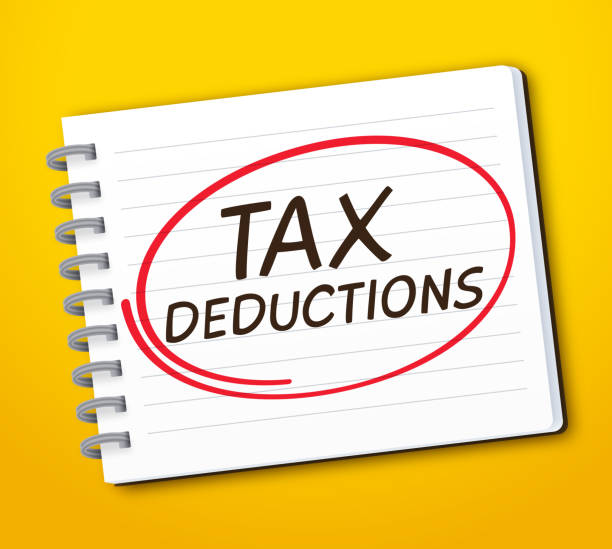Navigating the world of non-fungible tokens (NFTs) and understanding their tax implications in the United States can be a daunting task for collectors and investors alike. With the burgeoning popularity of NFTs in recent years, the Internal Revenue Service (IRS) has intensified its focus on cryptocurrency and digital assets, including NFTs. The tax treatment of these digital assets is complex and requires a nuanced understanding to avoid costly mistakes. This guide aims to provide a comprehensive overview of the current tax rules surrounding NFTs in the US, highlighting key considerations for accurately reporting your NFT transactions and investments. By staying informed and proactive, you can ensure compliance with IRS guidelines and potentially optimize your tax situation in 2024.
Key Takeaways
In the realm of NFT taxation, several key points stand out:
NFTs are considered property for tax purposes, mirroring the treatment of cryptocurrencies.
- Capital gains tax applies to profits from NFT sales, with rates varying based on the holding period.
- Deductions are possible for NFT creators, but meticulous record-keeping is essential.
- Tax obligations are triggered upon the sale or exchange of NFTs, not at the point of purchase.
Understanding these fundamentals can significantly aid in compliance and tax planning
Understanding NFT Taxes
The taxation of non-fungible tokens (NFTs) is a complex and evolving aspect of the digital economy. NFTs, while unique in characteristics, are subject to the broader regulations governing cryptocurrencies under the U.S. tax code. As such, individuals engaging in NFT transactions must navigate these waters carefully to avoid costly mistakes. Also read The Impact of NFTs on the Future of Digital Publishing in the USA.
Reporting NFT transactions
Navigating the tax implications of NFT transactions requires a nuanced understanding of IRS guidelines. Reporting NFT activities is crucial, as failure to do so can lead to penalties and audits.
Tax Implications of Buying and Selling NFTs
When buying or selling NFTs, individuals are essentially engaging in taxable events. Purchasing an NFT with cryptocurrency, for instance, constitutes not only a sale of the NFT but also a sale of the cryptocurrency used in the transaction. Both aspects can trigger capital gains taxation. The rate at which one is taxed depends on how long the NFT or cryptocurrency was held prior to the sale. Short-term capital gains (for assets held for one year or less) are taxed as ordinary income, while long-term gains (for assets held for more than one year) enjoy a lower tax rate.
Selling NFTs can also generate taxable events. Profits derived from their sale are subject to capital gains tax. Crucially, the cost basis (the original value of the NFT or cryptocurrency at the time of purchase) needs to be well documented for accurate tax reporting.
Differentiating between personal use and investment
The IRS differentiates between NFTs bought for personal use and those purchased as investments. This distinction is critical for tax purposes. NFTs acquired as collectibles or for personal enjoyment might not be taxed in the same manner as those bought for speculative or investment purposes.
For NFT collectors, the tax consequences come into play if and when they decide to sell the NFT. If the sale results in a profit, it is taxable. However, if an NFT is considered a personal use item, losses from its sale cannot be claimed as a tax deduction, unlike investment losses.
Understanding and differentiating between personal use and investment in the context of NFT transactions is vital. This distinction influences the method of reporting, the applicability of taxes, and the ability to deduct losses, guiding individuals in their efforts to comply with tax obligations while minimizing potential liabilities.
Tax Deductions and Credits for NFTs

Navigating the complex world of taxes for non-fungible tokens (NFTs) in the United States can present numerous opportunities for tax deductions and credits. Awareness and understanding of these prospects can significantly mitigate tax liabilities for NFT investors and creators.
NFT Tax Credits Available
As of the latest guidance, the Internal Revenue Service (IRS) does not explicitly offer tax credits exclusively for NFT transactions. However, NFT investors and creators may be eligible for broader tax credits that apply to investments and business operations. For instance, if an NFT is created as part of a business, certain credits related to business expenses could potentially be applicable. Individuals must consult with tax professionals concerning eligibility for general investment or business operation credits within the realm of NFT transactions. Also read NFTs That Earn You Stablecoins in the US.
Deductible Expenses Related to NFTs
Deductible expenses are critical components of tax planning for individuals engaged in NFT activities. Expenses that can be deducted include, but are not limited to:
- Creation Costs: For artists and creators, costs associated with producing NFTs, such as software subscriptions, artist fees, and transaction fees on NFT marketplaces, could be deductible.
- Business Expenses: If NFTs are part of a business, standard business deductions apply. These include marketing expenses, legal fees, and other operational costs directly related to the NFT venture.
- Capital Losses: Similar to stocks and other investments, losses on NFT investments can offset capital gains, potentially reducing overall tax liability.
Understanding NFT Taxes in the US
The taxation of NFTs in the US is an evolving area, with guidance and standards developing alongside the burgeoning market for these digital assets.
Key terms to know
Understanding taxation starts with understanding key terms:
- Capital Gains and Losses: The profit or loss made from the sale of an NFT, calculated as the difference between the purchase price and the selling price.
- Basis: The cost of acquiring an NFT, which is used to determine capital gains or losses upon sale.
- Wash Sale Rule: Although traditionally applied to stocks and securities, discussions are ongoing about its applicability to NFTs, which prohibits claiming a loss on a security sold in a wash sale.
Overview of NFT Taxation
NFTs, according to the IRS, are considered property for tax purposes, making them subject to capital gains taxes. This designation means that when an NFT is sold for a profit, the seller owes taxes on the capital gain. The specific rate depends on whether the asset was held for a short-term (less than a year, taxed as ordinary income) or long-term period (more than a year, taxed at reduced long-term capital gains rates).
For creators, the income received from creating and selling an NFT is taxed as ordinary income, with the potential for self-employment taxes depending on the structure of their operations.
By understanding these tax obligations and available deductions, NFT investors, creators, and traders can navigate the complexities of NFT taxation more effectively, potentially saving substantial amounts in taxes while remaining compliant with US tax laws. Consulting with a professional experienced in cryptocurrency and NFT taxation is highly recommended to ensure proper reporting and to explore all available tax-saving strategies.
Tracking NFT Investments
The intricacies of non-fungible token (NFT) investments necessitate meticulous record-keeping to ensure compliance with United States tax regulations and avoid costly mistakes. Given the digital nature of NFTs and their variability in value, investors should be diligent in documenting every transaction detail.
The importance of record-keeping
Accurate record-keeping is fundamental to tracking the purchase price, sale price, dates of transactions, and any fees associated with the acquisition or sale of an NFT. These details are essential for calculating potential capital gains or losses accurately. The Internal Revenue Service (IRS) requires taxpayers to report all transactions involving digital assets, including NFTs, making it imperative to maintain comprehensive records. Failure to do so could result in penalties or audits, compounding the complexity of an investor’s tax obligations.
Using software for tracking
To facilitate efficient record-keeping, investors can leverage various software solutions specifically designed for cryptocurrency and digital asset tracking. These platforms offer tools to automatically record transactions, calculate gains or losses, and prepare reports suitable for tax filing purposes. Their use can significantly reduce the risk of errors and simplify the tax reporting process, allowing investors to focus on their investment strategy rather than being bogged down by administrative tasks.
Capital Gains Tax on NFTs
Understanding the tax implications of NFT transactions is crucial for investors in the United States. The IRS treats NFTs as property for tax purposes, meaning that capital gains tax applies to profits derived from their sale.
Calculating capital gains on NFTs
Capital gains on NFTs are calculated by subtracting the purchase price (also known as the basis) from the sale price. If an NFT is sold for more than its purchase price, the difference is considered a capital gain and is taxable. Conversely, selling an NFT for less than its purchase price results in a capital loss, which can be used to offset other capital gains. It’s important for investors to accurately calculate these figures to ensure they are paying the correct amount of taxes.
Holding periods and tax rates
The tax rate on capital gains from NFTs depends on the holding period. If an NFT is held for more than a year before being sold, it qualifies for long-term capital gains tax rates, which are typically lower than short-term rates. As of 2024, the long-term capital gains tax rates are still 0%, 15%, and 20%, depending on the investor’s total taxable income.
In contrast, NFTs held for a year or less are subject to short-term capital gains tax, which is equivalent to an investor’s ordinary income tax rate. Understanding the distinction between these rates and planning transactions accordingly can significantly impact an investor’s tax liability and potential profitability from NFT investments.
NFT Gifts and Inheritance
Navigating the tax implications of gifting and inheriting non-fungible tokens (NFTs) is essential for both donors and recipients. Understanding these implications can significantly affect the tax obligations involved.
Tax consequences of gifting NFTs
When an NFT is gifted, it is crucial to consider the fair market value (FMV) of the NFT at the time of the gift.if the value of the NFT exceeds $16,000 in 2024, the donor may be required to file a gift tax return using Form 709. It’s important to consult with a tax professional for specific guidance on your situation, as tax laws can be complex. However, it’s important to note that the actual gift tax may not be due until the lifetime exemption amount is exceeded. For recipients, the cost basis of the gifted NFT is the same as the donor’s cost basis, unless the FMV at the time of the gift is lower. This detail is crucial for determining potential capital gains when the NFT is eventually sold.
Inheritance tax considerations for NFTs
Inherited NFTs have a different tax treatment. The recipient of an inherited NFT will generally benefit from a step-up’ about the FMV of the NFT at the decedent’s date of death. This adjustment often reduces potential capital gains tax if the NFT is sold later. Regarding federal estate taxes, NFTs, like other assets, are included in the decedent’s gross estate. However, as of 2024, federal estate taxes only apply to estates exceeding $13.61 million for individuals.
NFTs and Self-Employment Tax
For those involved in creating or mining NFTs, understanding the self-employment tax implications is crucial for complying with U.S. tax regulations.
NFT mining and staking implications
Individuals who mine or stake NFTs as a business activity may be subject to self-employment taxes on the income generated. This includes both the creation of new NFTs (mining) and the validation of transactions (staking) within the blockchain. The income derived from these activities is generally taxable and requires careful documentation and reporting. It’s pertinent for individuals to maintain detailed records of their mining or staking activities, including expenses that can be deducted to lower taxable income.
Self-employment tax rules for NFT creators
NFT creators, who sell their artwork or creations in the form of NFTs, are considered self-employed. Consequently, the income received from such sales is subject to income tax as well as self-employment taxes. Self-employment tax comprises Social Security and Medicare taxes, typically withheld from an employee’s paycheck. Creators must pay both the employer and employee portions of these taxes, totaling 15.3% of net earnings. Deductions for business expenses related to the creation and sale of NFTs can offset some of this tax burden. Creators need to keep thorough records of all transactions, including costs associated with producing and selling NFTs, to accurately report earnings and claim eligible deductions.
Hiring a Professional for NFT Tax Advice
Navigating the complexity of taxes on non-fungible tokens (NFTs) can be challenging for both new and seasoned investors. As the regulatory environment continues to evolve, seeking professional tax advice has become a prudent step for individuals looking to optimize their tax outcomes and avoid costly errors.
Benefits of consulting a tax professional
Consulting with a tax professional who is proficient in the realm of NFTs and cryptocurrency can offer significant advantages. First, these experts are equipped with the latest knowledge about tax regulations and can provide insights into how these laws apply to your NFT transactions. They can assist in identifying potential tax deductions and credits, thereby potentially reducing your taxable income. Moreover, a tax professional can help in accurately calculating your capital gains or losses from NFT sales, which is essential for accurate tax reporting. Another key benefit is the mitigation of risk. By ensuring compliance with IRS guidelines, a tax advisor can help you avoid audits, penalties, and interest charges.
Engaging a tax expert also saves time, allowing investors to focus on their investment strategies rather than on the complexities of tax laws.
Finding the right tax advisor for NFTs
Identifying a tax advisor who is well-versed in the nuances of NFT and cryptocurrency taxation is critical. Here are several steps to consider in your search:
- Research: Start by researching tax professionals with a demonstrated history in the cryptocurrency space. Many advisors now highlight their expertise in digital assets on their websites.
- Qualifications: Ensure that the tax professional has the necessary qualifications and is licensed to offer tax advice. Credentials to look for include Certified Public Accountant (CPA) or Enrolled Agent (EA) status.
- Experience: Look for testimonials or ask for references to gauge the advisor’s experience with clients who have similar tax considerations, specifically in the NFT and cryptocurrency sectors.
- Consultation: Arrange a preliminary consultation to discuss your specific needs and to evaluate how well the advisor understands the digital asset landscape.
- Fees: Understand the fee structure, whether it is a fixed fee or hourly rate, and ensure it aligns with your budget and expectations.
By carefully selecting a tax professional who specializes in NFTs, investors can navigate the complex landscape of digital asset taxation more effectively, ensuring compliance while optimizing their tax position.
Conclusion
Navigating the complex landscape of NFT taxation in the United States requires diligence, a comprehensive understanding of regulations, and strategic tax planning. As NFTs represent a relatively new and dynamic asset class, both investors and practitioners must stay informed about the evolving tax guidelines and implications.
By meticulously tracking transactions, understanding the tax obligations related to NFT investments, and leveraging professional financial advice, investors can avoid costly mistakes and effectively manage their tax liabilities. With proper planning and adherence to the IRS guidelines, engaging in NFT transactions can be a rewarding venture within the digital asset space. As the market matures and regulations become more defined, it is paramount for investors to remain adaptable and educated on the tax treatment of NFTs to ensure compliance and Optimize their investment outcomes.







